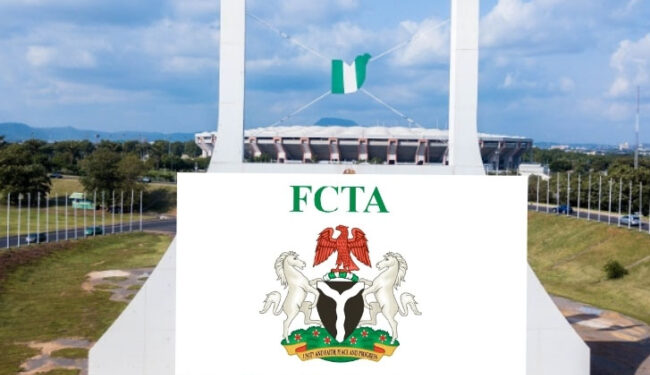The Federal Capital Territory Administration has set a target of over N250bn, as monthly internally generated revenue in the territory.
Mandate Secretary of the Economic Planning, Revenue Generation, and Public Private Partnerships Secretariat, Chinedum Elechi, made this known on Friday, during a meeting with revenue officers at the FCDA Conference Hall in Abuja.
Elechi said it was even possible for the administration to generate as much as N300bn in a month, adding, however, that it would have a “human face”, to deal with the issues of multiple taxation in the FCT.
He said: “We think that FCTA can do N250 billion a month on a good day, and that is the sort of target we are looking at.
“We can even do N300 billion a month in some good periods. So that is what we want to work out. However, in trying to grow revenue, it will also have a human face, because we are going to be dealing with issues of multiple taxation, so things are going to be streamlined.”
Elechi also stated that it was important for all revenue generating secretariats, departments and agencies to work at generating revenue for the infrastructural development of the FCT, particularly in the face of dwindling statutory allocation from the Federal Government.
“Improved IGR is paramount to the funding of the Administration to augment the dwindling Federal Government’s Monthly Statutory Allocations for accelerated infrastructural development in the FCT. Therefore, there is a strong need for all of us to redouble our efforts to attain our IGR targets and deliver on these enormous responsibilities”, he said.
He charged every SDA to identify all revenue-yielding sources, pursue their revenue targets, and block all loopholes and revenue leakages.
Meanwhile, participants at the meeting agreed to create a revenue optimisation and harmonisation framework, capacity building incentives, and build a common database of revenue collection agencies and taxpayers, to facilitate revenue generation and ease of doing business in the FCT.
Some of the SDAs at the meeting included the Abuja Geographic Information System, the FCT Inland Revenue Service, the Department of Outdoor Advertising & Signage, the FCT Water Board, the Health & Environmental Services Secretariat, Agriculture and Rural Development Secretariat, Abuja Environmental Protection Board, and Transport Secretariat, among others.
